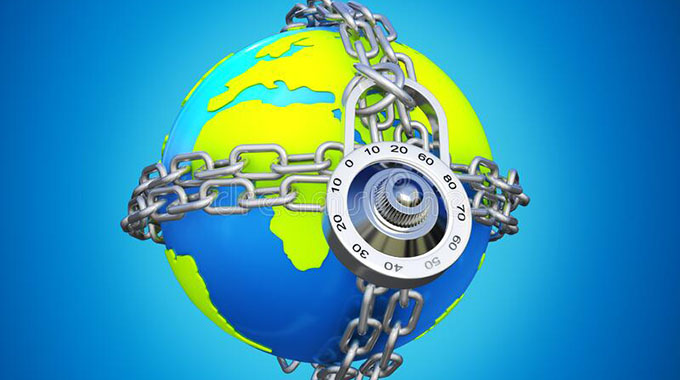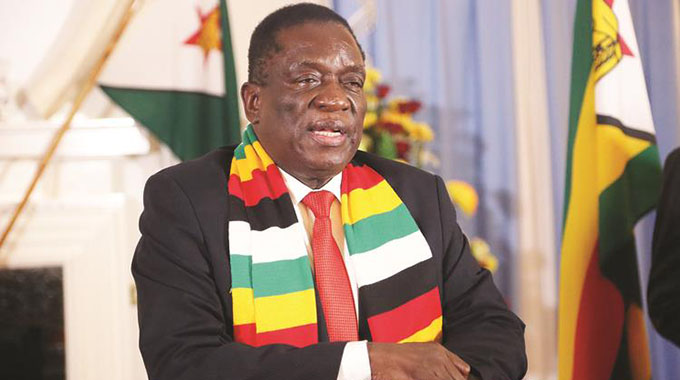Editorial Comment: Lockdown extension allows planned upgrade of all sectors

President Mnangagwa is stressing safety as he slowly relaxes lockdown provisions with each extension, now allowing the entire formal sector to reopen under stringent conditions.
So early in the first three weeks of lockdown, agriculture and farmers’ markets were able to join essential services, health facilities, pharmacies and food shops on the exempted list, with mines, tobacco sales and manufacturing exempted at the start of the first fortnight’s extension of lockdown.
At the same time, significant progress has been made on ensuring that the basic isolation health facilities, with the correct equipment, are available to treat the 15 percent or so of Covid-19 patients, who will require hospital care and specialised nursing.
Progress still needs to be made, but thanks to a great deal of support from the private sector and foreign well-wishers as well as re-budgeting its own resources, the Government has several isolation hospitals and hospital units up and running with more coming on stream almost daily. We are not at the level public health experts wish us to be, but at least there is now something in place. Testing has moved from one laboratory to the start of a chain.
Most of the clusters of infection have now been tracked down, although it seems there are at least two clusters where the original source of infection has still to be identified, something that must worry those whose job it is to ring-fence each new focus of infection.
As public health professionals and authorities increase their grip on the testing and control of infection, able to move far more swiftly to find and isolate new contacts as they become better equipped and learn more, a lot of effort now needs to move to the restart of economic activity.
The human suffering of the lockdown has been high, despite major Government efforts to give at least minimum relief.
The President has used the lockdown period to allow sectors to reopen a step at a time, and this needs to continue, but with each step perhaps being permitted more frequently.
The conditions of reopening a business are stringent, but not impossible given adequate support.
Those temperature scanners, for example, need to be readily available. The same sort of effort that digitilised the commercial world with point-of-sale machines needs to be applied to make it safer.
Face masks are still very expensive, around $50 each if you are lucky. Yet the ordinary mask is not a complex design and can be made by anyone with some basic knowledge of sewing, if they have a pattern; so those approved patterns need to be distributed widely.
Presumably, the already permitted reopening of informal manufacturing can include tailors.
The main function of a basic mask, under World Health Organisation (WHO) guidelines, is to help stop infected people infecting others.
If the virus-laden droplets from an infected person cannot easily get beyond the end of their nose, then that plus social distancing makes infection much more difficult.
Health staff in an isolation unit need fancier protection to prevent being infected, hence the urgent provision of personal protective equipment for this group.
Sanitiser is still very expensive in the shops. The basic WHO-formula sanitiser being churned out by universities and some alcohol producers needs to be readily available in basic packaging, rather than the expensive imported bottles now in shops.
The reopening will strain public transport further, and already on some routes essential workers have to wait for several hours for a bus.
Not everyone owns a car, and already people needing to see a doctor for a new prescription for say blood pressure or a pharmacy for another month of drugs face problems. It should be possible to set conditions to allow registered taxis, with a maximum or one or two passengers, to operate.
The Zupco franchised kombis could be next on the list, with Zupco enforcing set health conditions and with either a temporary increase in fares to cope with reduced seating, or an adjustment of subsidies.
This could force many independent operators to go through the process of meeting Zupco requirements, and accept Zupco controls, something everyone wants after Covid-19.
The informal sector is not impossible to restart, but we now need to convert 40 years of talk into action with controlled, regulated markets convenient to customers.
For a start, enclosed flea markets, almost all in the private sector, could reopen with a single entrance for customers, so a temperature scan can be made, and the testing, masking and social distancing requirements enforced.
Planning regulations could be adjusted to allow more of the private building stock to be used for such regulated markets.
The flight of many offices to the suburbs has left empty office buildings or vacant floors in city centres so conversions are possible.
Local authorities could be ordered to create suburban market complexes, with minimum and inexpensive conditions.
Covid-19 in the end could provide the impetus we needed to get the informal sector into the desired permanent and regulated environment.
ZimStat has found that close on three quarters of the economically active population earns a living in the informal sector, so we do need, urgently, to find ways of reopening this sector safely.
But those ways will in years to come could provide that safe, easily accessed and regulated environment we have been seeking for decades.
Powerless vendors might well agree to surrender total independence for security.
The President has not been rigid as he imposes and extends lockdowns. But as he eases conditions he wants better safety.
This is possible, and in the end might well make cities a lot more liveable.











Comments